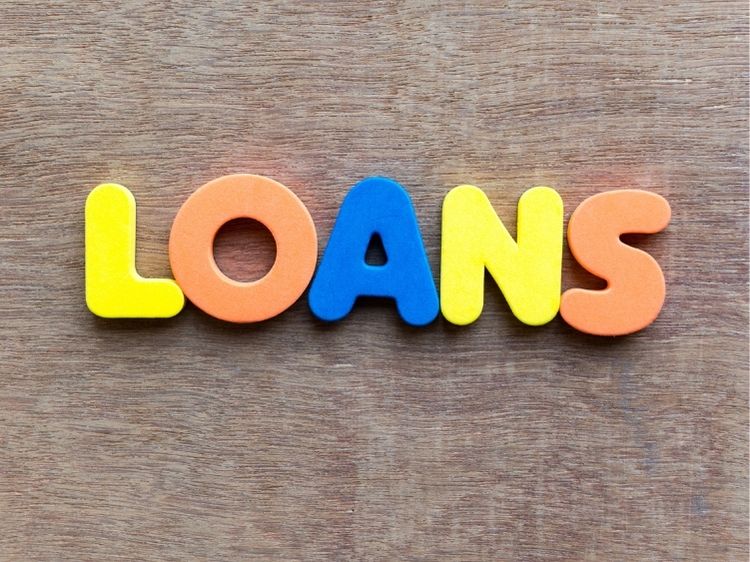Ever found yourself in a financial pinch and wondered, “How can I get my hands on some quick cash?” Whether you’re looking to consolidate debt, fund a big purchase, or tackle an unexpected expense, a personal loan could be your answer. But before diving in headfirst, it’s important to understand exactly what a personal loan entails, how it works, and what it could mean for your financial future. So, buckle up as we break it all down!
What is a Personal Loan?
In simple terms, a personal loan is a lump sum of money borrowed from a lender, typically repaid in fixed monthly installments over a set period. It’s versatile—unlike other loans that must be used for specific purposes, such as a car or a house, personal loans can be used for just about anything.
Whether you’re dealing with a medical emergency, home renovation, or even a vacation, personal loans offer flexibility. But with that freedom comes responsibility. You’ve got to pay it back with interest. Sounds fair, right?
How Do Personal Loans Work?
The process of getting a personal loan might seem daunting, but it’s actually pretty straightforward. Here’s a simple breakdown:
- Application: First, you apply through a bank, credit union, or online lender. They’ll assess your credit score, income, and financial history to determine your eligibility.
- Approval: Once approved, the lender will offer you a loan amount, interest rate, and repayment terms.
- Receiving Funds: After agreeing to the terms, the funds are deposited into your account, typically within a few business days.
- Repayment: You’ll repay the loan in fixed monthly payments, which include both the principal (the amount you borrowed) and interest.
Types of Personal Loans
Not all personal loans are created equal! Here are the two main types:
- Secured Personal Loan: This type of loan requires collateral, like a car or savings account, which the lender can seize if you fail to repay. The upside? Lower interest rates.
- Unsecured Personal Loan: No collateral required, but it’s riskier for lenders. Consequently, these loans come with higher interest rates.
Why Consider a Personal Loan?
With so many financing options out there, you might be wondering, “Why choose a personal loan?” Well, here are some great reasons:
- Flexibility: As mentioned earlier, personal loans can be used for a wide range of purposes, making them one of the most versatile financial tools.
- Fixed Payments: Unlike credit cards, where interest can add up quickly, personal loans come with fixed monthly payments, so there are no surprises.
- Lower Interest Rates: Compared to credit cards, personal loans often have lower interest rates, especially for those with good credit.
Personal Loan Eligibility: What You Need to Know
Wondering if you qualify? Here are the factors most lenders consider:
- Credit Score: A higher score can get you a lower interest rate. Typically, a score of 650 or above is desirable.
- Income: Lenders want to ensure you can repay the loan, so having a stable income is crucial.
- Debt-to-Income Ratio: This measures how much of your monthly income goes towards paying debts. A lower ratio increases your chances of approval.
Personal Loan vs. Credit Card: Which Is Better?
It’s a common question: “Should I take out a personal loan or use my credit card?” Here’s a quick comparison:
- Interest Rates: Personal loans generally have lower interest rates compared to credit cards.
- Repayment Terms: Personal loans offer fixed repayment terms, whereas credit cards only require minimum monthly payments, which could lead to years of debt.
- Flexibility: While credit cards offer a revolving line of credit, personal loans provide a lump sum upfront.
How to Apply for a Personal Loan
Now that you’re convinced a personal loan might be the right choice, let’s talk about the application process. Follow these steps:
- Check Your Credit: Review your credit report and score. Correct any errors before applying.
- Shop Around: Don’t settle for the first offer. Compare rates from multiple lenders to find the best deal.
- Prequalification: Some lenders offer prequalification, which allows you to check your eligibility and potential rates without affecting your credit score.
- Submit Your Application: Once you’ve found the right lender, complete the application process, providing all necessary documentation like proof of income and identity.
- Review the Terms: Carefully review the loan terms, including interest rates and fees, before signing the agreement.
- Receive Your Funds: After approval, you’ll receive the funds, typically within a few days.
Things to Watch Out For
Before you sign on the dotted line, here are a few things to keep in mind:
- Interest Rates: Be aware of variable vs. fixed rates. Variable rates can change over time, potentially increasing your monthly payments.
- Fees: Some lenders charge origination fees, late payment fees, or prepayment penalties. Always read the fine print.
- Scams: Unfortunately, there are fraudulent lenders out there. Be cautious of any lender that asks for upfront fees or guarantees approval without checking your credit.
FAQs
- Can I use a personal loan to pay off credit card debt?
Absolutely! In fact, many people use personal loans to consolidate credit card debt due to lower interest rates. - How long does it take to get approved for a personal loan?
It varies by lender, but approval can take anywhere from a few hours to a few days. Once approved, funds are typically deposited within 1-5 business days. - What’s the difference between a fixed-rate and variable-rate loan?
A fixed-rate loan has a constant interest rate and monthly payment throughout the loan term, while a variable-rate loan’s interest rate can fluctuate, impacting your payment amount. - Will applying for a personal loan affect my credit score?
Yes, applying for a personal loan typically results in a hard credit inquiry, which can temporarily lower your score by a few points. - What happens if I miss a payment?
Missing a payment can result in late fees and negatively impact your credit score. It’s essential to communicate with your lender if you’re having trouble making payments.
Conclusion
Personal loans can be a powerful financial tool when used responsibly. Whether you’re consolidating debt, making a big purchase, or just need some extra cash to cover life’s unexpected moments, understanding the ins and outs of personal loans is crucial. Remember to do your research, compare lenders, and most importantly, ensure that the loan fits your financial situation. After all, a personal loan is a commitment, so it’s vital to make the right decision.



